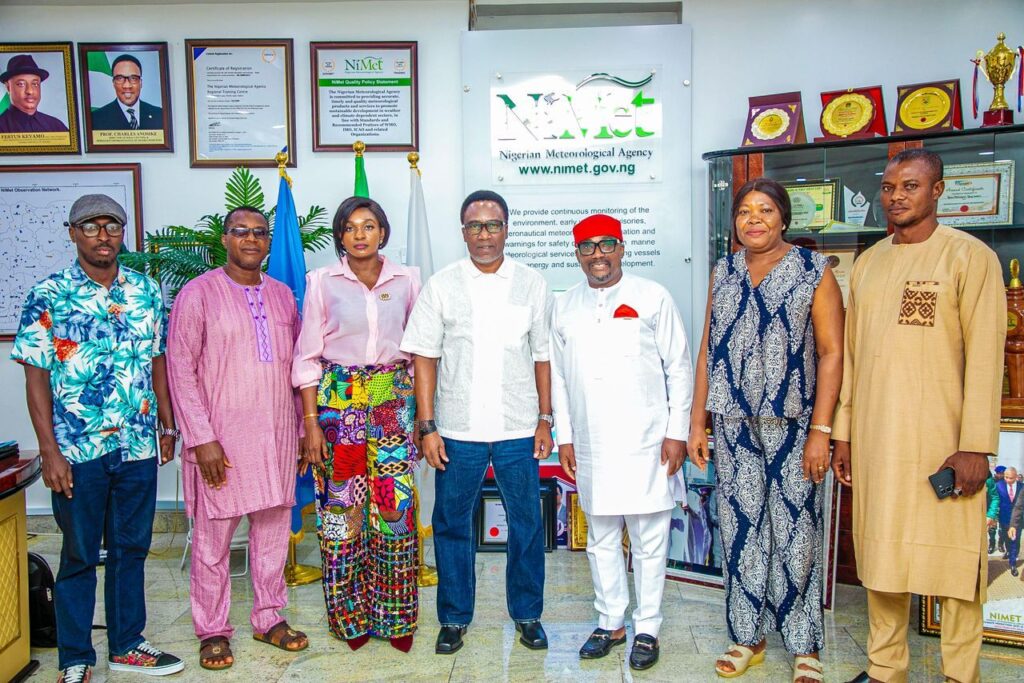The Nigerian Meteorological Agency (NiMet) and the Anambra-Imo River Basin Development Authority (AIRBDA) have initiated discussions to strengthen collaboration in addressing the growing challenges of climate change, particularly its impact on river basin hydrology and water resource management.
Speaking during a courtesy visit by the Managing Director/Chief Executive Officer of AIRBDA, Rt. Hon. Emeka Nduka, to NiMet headquarters in Abuja, the Director-General/CEO of NiMet, Professor Charles Anosike, underscored the significant influence of climate change on rainfall patterns and temperature.
“These changes can dramatically affect river basin hydrology, leading to increased occurrences of floods and droughts. Such extremes threaten livelihoods, damage critical infrastructure, and undermine food security,” Anosike said.
He stressed the intrinsic connection between meteorology and river basins, noting that “meteorological variables like rainfall and temperature directly influence a river basin’s hydrological behavior, just as the physical structure of river basins can shape local weather and climate patterns.”
Professor Anosike also highlighted the importance of NiMet’s Seasonal Climate Prediction (SCP) tool, describing it as essential for early warning and effective planning.
“Our flagship SCP offers valuable insights that, if properly harnessed, can help policymakers anticipate and mitigate the impact of weather extremes, particularly flooding,” he added.
He called for deeper collaboration between both agencies to support agricultural planning and integrated water resource management.
In his response, Rt. Hon. Emeka Nduka thanked the NiMet leadership for the warm reception and reiterated AIRBDA’s interest in enhancing technical cooperation with the agency.
He acknowledged the vital role NiMet’s data and services play in boosting irrigation efficiency and managing dam infrastructure in the face of climate change.
The meeting concluded with a mutual commitment to formalize the partnership through a Memorandum of Understanding (MoU) aimed at promoting joint research, sharing expertise, and implementing strategies to build resilience, ensure food security, and support sustainable development across Nigeria’s southeastern corridor.















